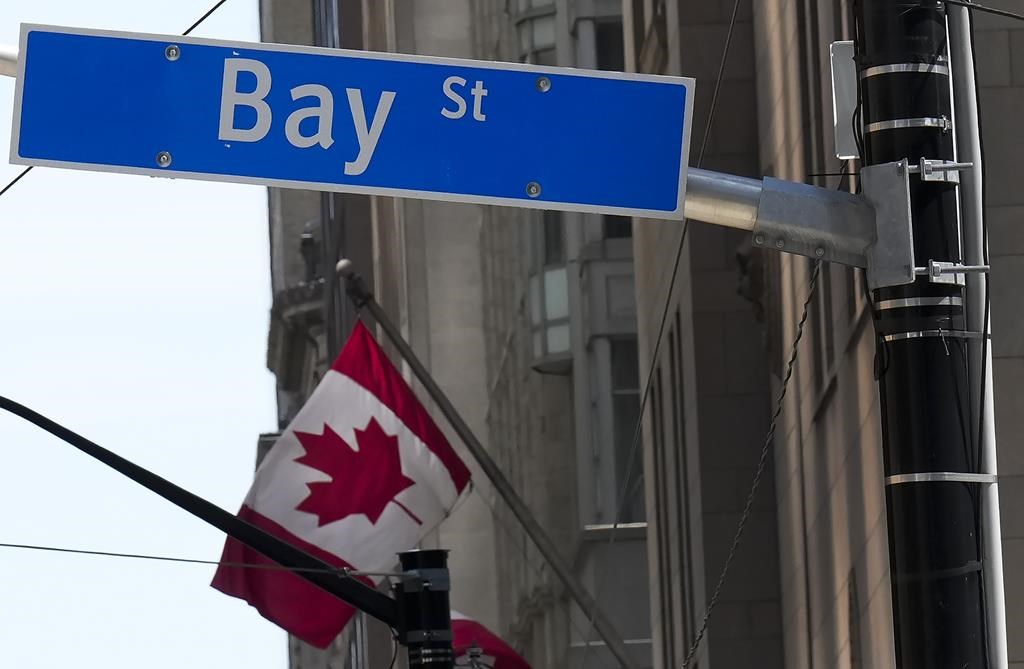TORONTO — A volatile trading day capped the quarter as an early rally evaporated to leave the S&P/TSX composite index with the barest of gains, while U.S. markets swung deep into the red.
The trading, which saw North American markets give up what were gains of more than one per cent in morning trading, was emblematic of recent sessions that have been scattered but weighted to the downside as investors fear for the economy because of the determination of central banks to make borrowing money more expensive.
“There’s been a handful of Fed speakers all week that have been out again today, reinforcing this message that they remain firmly on the path of fighting inflation, they keep coming back to that message,” said Mike Archibald, vice-president and portfolio manager with AGF Investments Inc.
U.S. Federal Reserve Vice Chair Lael Brainard was the latest, insisting Friday that the bank won’t pull back on rates prematurely.
“That seems to continue to throw a little bit of cold water on any rally attempts that the broader market has had,” said Archibald.
The reminder of the Fed’s resolve, along with an indicator of inflation in the U.S. running hotter than expected, was enough to erase the early rally Friday.
In the end, the S&P/TSX composite index closed up 2.38 points at 18,444.22, marking a second negative quarter in a row. The index is now down 15.7 per cent since the end of March.
“It’s certainly been a challenging market for investors, obviously inflation has been elevated, the bond market has been a challenge as well, so hasn’t been a lot of places for investors to hide here in 2022,” said Archibald.
The Toronto market was buffered from further losses as it recorded modest gains in information technology, utilities, health care, and especially the materials sector as investors poured into gold stocks.
“The gold price isn’t really up all that much, however, gold equities are having a really nice day. I think there’s just a bit of hiding at the end of the quarter,” said Archibald.
The S&P/TSX global gold index was up 2.5 per cent, including gains of 5.5 per cent for Kinross Gold Corp. and 3.5 per cent for Barrick Gold Corp.
The December gold contract itself was up US$3.40 at US$1,672.00 an ounce and the December copper contract was down a penny at US$3.41 a pound.
The S&P/TSX composite index faced pressure from industrials, financials, and especially energy as the November crude contract closed down US$1.74 at US$79.49 per barrel and the November natural gas contract was down nearly 11 cents at US$6.77 per mmBTU.
New York fared worse, with the Dow Jones industrial average closing down 500.10 points, or 1.7 per cent, at 28,725.51. The S&P 500 index was down 54.85 points, or 1.5 per cent, at 3,585.62, while the Nasdaq composite was down 161.89 points, or 1.5 per cent, at 10,575.62.
Stocks were under pressure as U.S. Treasury yields and the U.S. dollar were on the rise again. That put pressure on the Canadian dollar, which was trading for 72.45 cents US, according to XE.com, compared with 72.96 cents US on Thursday.
There will need to be a reversal, or at least a slowing, of the ascent of the U.S. dollar to change the risk appetite of investors, said Archibald.
Looking ahead to the third quarter, he expects to see caution going into the earnings season with the potential for more downwardly revised guidances, as happened with Micron Technology Inc. Thursday evening.
The overall market sentiment is, however, low enough that even a glimmer of good news could turn the tide, said Archibald.
“The level of bearishness in the market is excessively high, so it won’t take a lot of good news to change in the narrative, to probably spark another pretty significant rally in equities. What that happens to be remains to be seen, but the bar is very low for for something good to happen right now.”
This report by The Canadian Press was first published Sept. 30, 2022.
Companies in this story: (TSX:GSPTSE, TSX_CADUSD=X)



